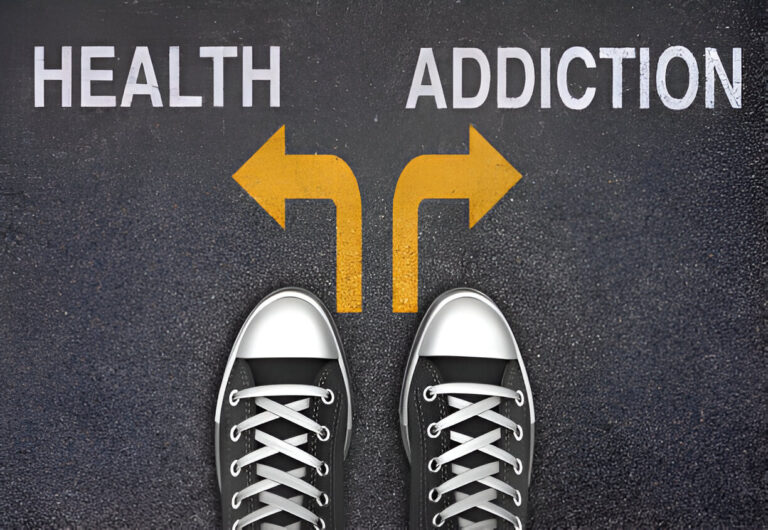More and more people are living with addiction these days. According to the World Health Organisation over 400 million people live with addiction, and three million people die per year as a result of them. Which is not only saddening, but also suggests that people aren’t getting the help they need.
Seeking help from private alcohol and drug rehab centres is more accessible than ever before, yet still so many people are failing to do so.
The reasoning for that is plentiful, but often misguided, whether that be believing certain myths, fearing stigma or simply thinking they can’t afford it. However, the steps are much more straightforward than you think and the options for treatment are available. So, if you’re struggling, here are the steps to take on your road to recovery…
Step 1: Acknowledging the Problem
Actually, first and foremost you should acknowledge the problem. It’s the most crucial step towards recovery as it will put you on the pathway towards getting the help you need.
It’s a period of time where you need to be honest with yourself and accept that your substance usage is negatively affecting your life. It isn’t easy to do, but making that step can be empowering and lay the foundations for getting help.
Step 2: Seeking Professional Help
Getting help can often be the most successful way of addressing your condition. You should reach out to doctors, therapists and addiction specialists to start your journey.
They’ll provide you with various options for treatment and help build a detailed plan for getting your life back on track. This will involve:
- Medical detoxification – A supervised process that helps individuals safely withdraw from substances, particularly alcohol or drugs, while managing withdrawal symptoms.
- Rehabilitation programmes – These can be inpatient or outpatient and provide structured therapy, counselling, and skills training to help individuals overcome addiction.
- Therapy and counselling – Cognitive-behavioural therapy (CBT), motivational interviewing, and other therapeutic approaches can help address the underlying causes of addiction and develop coping strategies.
Step 3: Building a Support Network
While it’s only you that really can fully address your issues, you shouldn’t look to do it alone. Support can be invaluable and be the encouragement you need to stay on track.
Friends and family can provide this support, while you should also consider support groups such as Alcoholics Anonymous. These can provide a safe space for you to share your experiences and troubles, while also picking up guidance from those who have been through it before.
Step 4: Developing Healthy Coping Strategies
A big part of recovery is ensuring you have healthy coping mechanisms in place. Where you once may have turned to alcohol or drugs during times of stress or sadness, you need to find a healthier way to address your issues or provide temporary relief.
There are many ways in which you can do this and therapists can help you find the activities that suit your needs. But you could consider:
- Exercise and physical activity – Regular movement can reduce stress, improve mood, and boost overall well-being.
- Mindfulness and meditation – Practices such as deep breathing, yoga, and meditation can help individuals stay present and manage cravings.
- Creative outlets – Engaging in hobbies such as painting, music, writing, or gardening can provide a positive distraction and a sense of accomplishment.
- Setting goals – Establishing short- and long-term goals gives individuals a sense of purpose and motivation to stay on track.
Step 5: Avoiding Triggers and High-Risk Situations
Speaking of addressing stress, it’s also important to avoid triggers as best you can. Essentially the things that may see you revert back to your old ways and trigger relapse. This could be certain situations, people or even places.
For example, you might want to avoid gatherings where drinking is a focal point, you may wish to look for a new career if you attributed the stress of work as a key factor in developing addiction.
Create a list of your trigger points, how you can avoid them and what you should do if you were to encounter them to ensure you’re fully prepared for such eventualities and can combat them effectively.
Step 6: Learning from Relapse
Relapse is a common part of the recovery process and should not be seen as a failure. Many individuals experience setbacks on their journey, but what matters is how they respond. Instead of viewing relapse as a reason to give up, it should be seen as an opportunity to reassess and strengthen one’s recovery plan.
Understanding what led to the relapse—whether it was stress, emotional distress, or exposure to triggers—can help individuals develop better strategies for avoiding similar situations in the future. Seeking support immediately after a relapse can prevent it from turning into a full return to addictive behaviour.
Step 7: Embracing a New Lifestyle
Sustained recovery is about more than just abstaining from substances or behaviours; it is about creating a fulfilling and meaningful life. Building new routines, forming healthy relationships, and setting personal goals all contribute to long-term success.
A key aspect of this step is focusing on self-improvement and personal growth. This may involve pursuing education or career aspirations, rebuilding relationships, or engaging in activities that bring joy and fulfilment. By creating a life worth living, individuals reduce the desire to return to old habits.
In the journey to overcoming addiction, finding the right support system is crucial. For those seeking professional help, exploring options for drug and alcohol treatment in Portland can be a significant step forward. This city offers a variety of resources and programs tailored to meet individual needs, providing a supportive environment for recovery. Engaging with a community that understands the challenges of addiction can make a profound difference, offering both guidance and encouragement. By taking advantage of these resources, individuals can build a strong foundation for a healthier, addiction-free life, surrounded by professionals and peers who are committed to their success.


